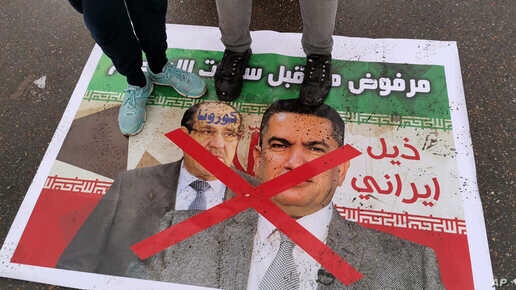CAIRO – Iraqi President Barham Salih’s choice of former Najaf Governor Adnan Zurfi to form a new government is meeting opposition from the country’s divided Shiite political camp, along with the country’s main power broker, Iran.
Zurfi, who has 30 days to put together a Cabinet, is facing what some analysts see as insurmountable odds.
Despite opposition to Zurfi’s nomination by several key Shiite political parties, Iraqi TV reported that U.N. special envoy Jeanine Hennin-Plasschaert welcomed his selection, noting Iraq needs “strong and effective leadership.”
Kurdish President Barham Salih, whom the Iraqi constitution allows to select the new prime minister-designate, made his choice after the previous nominee, Mohammed Towfiq Allawi, failed to form a government.
Salih told Iraqi TV Zurfi must tackle major issues facing Iraq.
The chief duty of the new government, he said, will be to organize free and fair parliamentary elections that allow Iraqis to determine their own future. The country, he added, faces serious threats, including the coronavirus and financial havoc.
Pro-Iranian cleric Moqtada al-Sadr’s “Sairoun” coalition says it opposes Zurfi’s nomination,as do several other key Shiite political players, including Fatih-bloc leader Hadi al-Ameri. Zurfi is a political ally and leads the parliamentary bloc of former Prime Minister Haidar al-Abadi.
Shiite parties that oppose Zurfi are waging a campaign on TV and social media criticizing him for alleged corruption during his tenure as governor of Najaf. He also faces a smear campaign for alleged ties to the U.S. Zurfi lived in the U.S. state of Michigan before returning to Iraq after the U.S. invasion of the country in 2003.
Khattar Abou Diab, who teaches political science at the University of Paris, told VOA that Zurfi is “undoubtedly not the U.S. first choice for prime minister,” and that he is close to former prime minister Abadi and Iraqi intelligence chief Mustapha Kazemi, so “not a favorite of Iran, either.”
He says that Zurfi does not have the approval of Muqtada al-Sadr or the majority of the Shi’ite political class in Iraq, in addition to facing Iranian opposition, so he thinks it is unlikely that he will be able to form a government, and that his selection is just a tactical move by President Salih.
Abou Diab adds that Iraq’s Kurdish factions are in a state of confusion. Sunni parties, he says, have no political clout, while Shiite factions are increasingly divided. The killing of Iranian Brigadier General Qassem Soleimani by a U.S. drone in January, he says, appears to have wrested Iraq from Iran’s grip, and his successor, Ismail Qa’ani, and Iran’s National Security Adviser, Ali Shamkhani, quarreling over who will take his place as Iran’s top man in Iraq.
Iraqi analyst Bashir Hajaimi told al-Hurra TV that the country’s post-October street protest movement is not pleased with the choice of Zurfi, either, and that the demonstrators want to know “where he stands on compensation for victims of protests, corruption, and recent threats to Iraq’s sovereignty.”
No comments:
Post a Comment